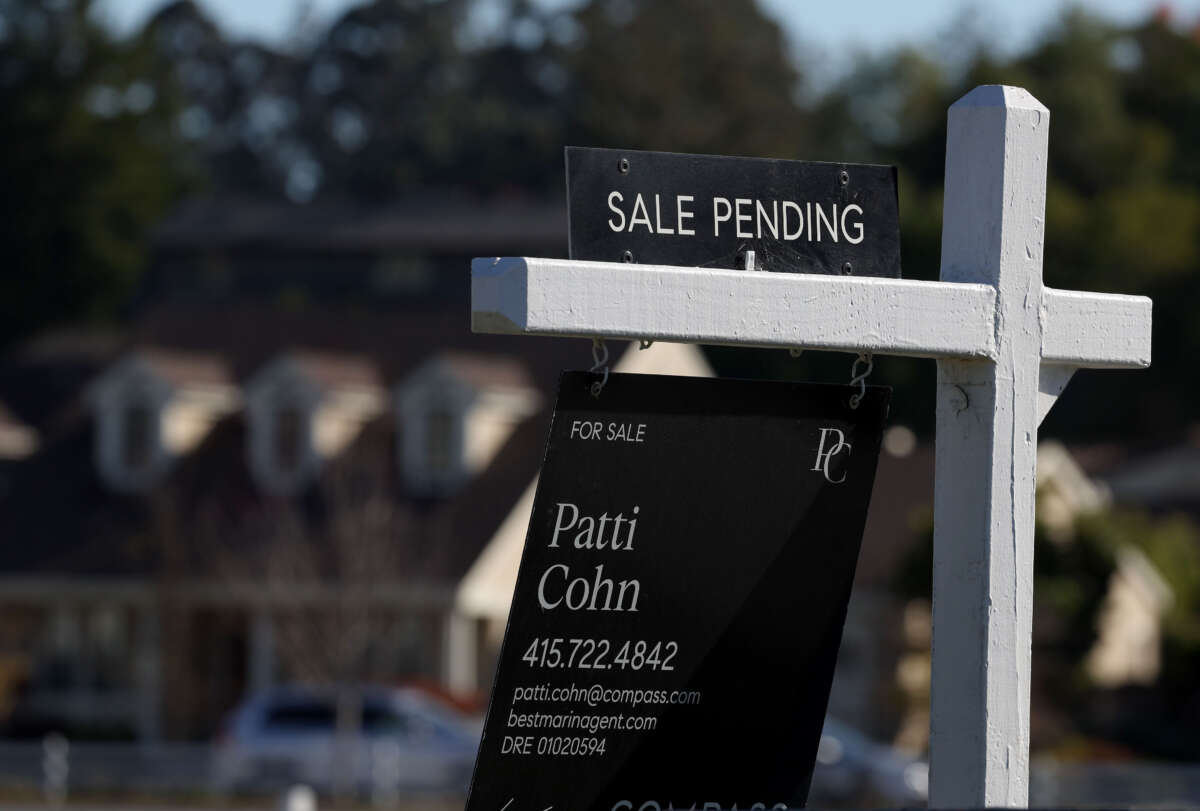Democrats have introduced bicameral legislation this week to take a step toward getting Wall Street out of the housing market amid a crisis during which house prices have soared to record highs.
The bill would ban hedge funds from buying and owning single-family homes. The legislation would require hedge funds to sell off their stock of single-family homes over the next 10 years and would then implement an outright ban. For every single-family home a hedge fund owns over a certain limit each year, it would be subject to a tax penalty, the revenues from which would be used for down payment assistance programs for those seeking to buy their first home from a hedge fund.
The End Hedge Fund Control of American Homes Act of 2023 was introduced by Rep. Adam Smith (D-Washington) and Sen. Jeff Merkley (D-Oregon). The lawmakers say that the only purpose for hedge funds to own homes is to make profits and that such investing has only made it more difficult for working class Americans to afford to buy a home.
“In 1971, my father was able to buy the house I grew up in for $15,000 on the salary he earned as a baggage handler at SeaTac Airport. That same house would cost nearly $500,000 today yet wages for workers like my father have not kept up,” Smith said in a statement. “Congress must take action to crack down on corporate greed and get hedge funds out of the single-family home market.”
The bill, if passed, could provide some rare relief to people seeking to buy a home. According to National Association of Realtors data, the median price of a single-family home in November 2019 was $271,300 — while, in November of this year, the median home price was $400,000.
Skyrocketing home prices are due in part to an increase in investor purchases of homes that have squeezed out would-be homeowners, especially during the hot housing market shortly after the pandemic began. As house prices rose over the past years, so did the share of houses being bought by investors, hitting an all-time high in 2022. Similarly, rents have been rising in part due to corporate-driven housing shortages and corporate profit-seeking.
“The housing in our neighborhoods should be homes for people, not profit centers for Wall Street,” said Merkley. “Yet, in every corner of the country, giant financial corporations are buying up housing and driving up both rents and home prices.”
The lawmakers cite research by the Urban Institute done earlier this year that found that, as of June 2022, hedge funds and institutional investors owned an estimated 574,000 single-family homes in the U.S. And, while no single group owned more than 1,000 single-family rental units in 2011, large institutions are projected to own more than 40 percent of all single-family rental units in the U.S. by 2030, according to a MetLife Investment Management estimate.
The End Hedge Fund Control of American Homes Act has been cosponsored by Representatives Linda Sánchez (D-California) and Nikema Williams (D-Georgia) and Sen. Tina Smith (D-Minnesota). It also has the support of a number of housing and consumer rights organizations, many of whom emphasized that corporate investors are making it ever harder for individuals to buy a home.
“Very large private equity companies are buying up thousands of affordable houses that traditionally are the homes for first-time-homebuyers, and converting them to long term and high priced rentals,” said National Housing Resource Center Executive Director Bruce Dorpalen in a statement. “Homeownership is one of the best ways to build wealth in the United States and these private equity investment companies are shutting that out for too many of our families.”
We have 8 days to raise $47,000 — we’re counting on your support!
For those who care about justice, liberation and even the very survival of our species, we must remember our power to take action.
We won’t pretend it’s the only thing you can or should do, but one small step is to pitch in to support Truthout — as one of the last remaining truly independent, nonprofit, reader-funded news platforms, your gift will help keep the facts flowing freely.
